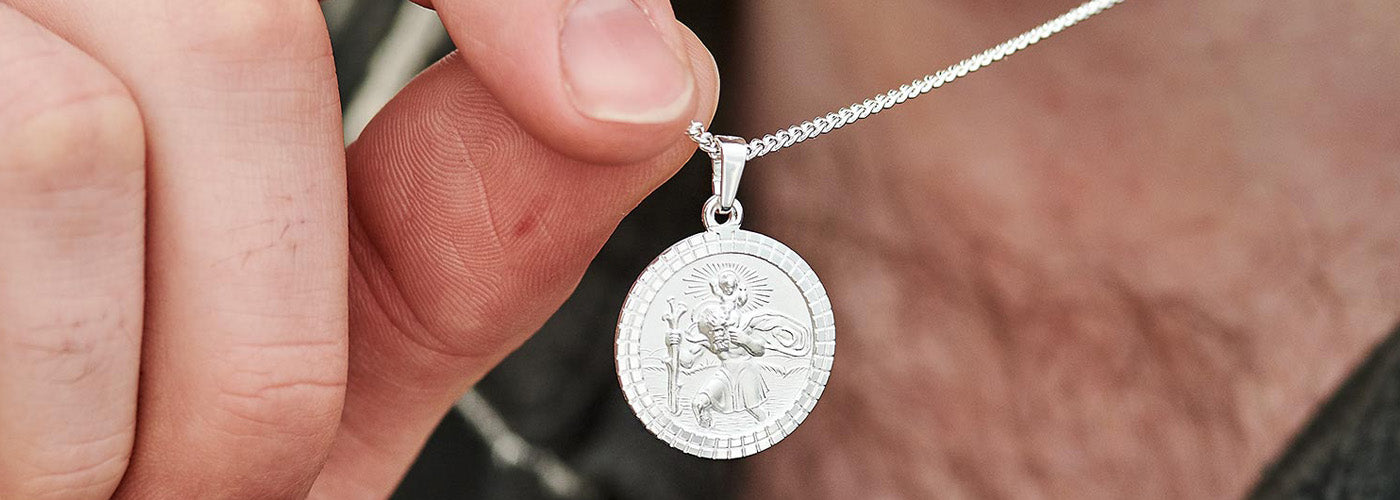14 Ethical and Eco-Friendly Travel Tips
Travel is an incredible gift, that so many of us are lucky enough to be able to do. In recent years the travel industry has exploded and become much more accessible for everyone.
Cheap flights, hostels and thriving travelling communities have meant that travel is no longer reserved for the upper class or super adventurous.
This accessibility, however, comes at a price. The tourism industry, like so many others, make a profit by exploiting resources. While it does pump money into the economy of so many countries, it can also have negative impacts on the environment, wildlife and local communities. It can also undermine local culture and customs.
As travellers, it is important to be mindful of this.
What is responsible travel
To travel responsibly means to be socially, culturally and environmentally aware when you travel. This means understanding the impact you make and consciously try to make your impact positive.
This involves being more eco-friendly, supporting sustainable practices and businesses in the industry. It also means respecting local people and where they live.
There are many ways you can reduce your negative impact as a traveller and increase your positive impact.
This post is going to go over 14 practices you can implement to make sure you are a responsible traveller.
1. Learn about and respect the local community
Before you step foot in a new country do some research and get to know it. This is particularly relevant if it is a country with a much different culture to your own.
Research local customs, beliefs, history, religion, language and culture. When you arrive, keep an open mind, practise tolerance and respect diversity. You may find that people are very different from you, so it is best to understand this before you go and respect it once you arrive. You are visiting their home after all!
It can be easy to slip and feel entitled as a traveller, especially if locals make you feel special for being there. So it is always best to remember this and treat others in accordance with their own norms and customs. Try and learn the basics of their language as well.
This will go a really long way in you having a positive impact on the people that you meet on your journey.
2. Connect with and support locals
Connecting with and supporting locals is the best way to have a positive impact on your destination, especially if you are visiting a developing nation.
Support local businesses by buying from local people instead of large corporations. This will help support the local economy and put your money directly into the hands of those who can benefit from it most.
Local businesses you can support include local markets, drivers, guides, restaurants, tour operators and accommodation providers.
Eating and drinking locally produced goods has a far smaller carbon footprint than imported goods. People tend to miss the comforts of home food, especially when travelling in a very foreign place. But try to branch out and eat in the local places as much as you can.
Always check what is imported and what is local when you are buying fruit, veggies and even beer. This will allow you to have an authentic yet sustainable experience!
Plus by supporting locals and their businesses you will have a much more enriching experience. You will learn a lot about life in the country you are visiting, will make great friends and probably save money. This will also leave the locals with a great impression of travellers and encourage them to be more welcoming and hospitable to future travellers.
Take the time to get to know the people and explore the mutual connection that you both can benefit from.

3. Travel slow
Slow travel is all about exploring one place in-depth as opposed to skimming the surface of many places in a hurry. Most travellers are guilty of going on whirlwind trips to countries or even whole continents, ticking off the main landmarks and famous tourist attractions.
Slow travel counters that way of travelling by exploring just one place or region for an extended period of time. It is about being fluid, flexible and open to the unexpected. Slow travellers don’t bother making many plans, they learn to go with the flow and take what comes.
Slow travel helps to support the local economy by staying in one place for a long time and supporting local businesses.
It is also better for the environment! By not taking multiple buses, trains, taxis and planes to hop around you really cut down your negative impact on the environment. Slow travellers tend to consume less of the local resources.
It allows you to make more meaningful connections and gives you more freedom. Slow travel is the way to go for the responsible tourist.
4. Give back to the countries you are visiting
You can give back to the places you visit by supporting non-profit organisations and volunteering your time.
Contact local organisations to get guidance on how you can help. Do some research and look up any initiatives that are already going on that you could apply to be a part of.
This could include clean-up drives, teaching English, tree planting, animal care and more. You can volunteer yourself, donate money or buy any products they are using to fundraise. If you have certain skills they could benefit from like website development you could offer your services for free to help them out
In a lot of developing countries, a little goes a long way, so you can make a real impact. Just do your research to ensure the organisations you are looking to support are sustainable and ethical.

5. Be friendly- not everyone is out to get you!
Some destinations get a bad rap for being full of liars, scammers and cheats (looking at you India!). But the reality is, most people are nice and genuinely want to help you. You might be a real novelty to them!
Not everyone you meet will try and take advantage of you. So don’t always have your guard up to high when interacting with locals and making transactions. If you are smiling and happy, that is exactly what will be reflected back to you. You should still be careful, follow your gut and use common sense when travelling, but don’t get carried away!
Also, don’t sweat paying more than the locals. What might not be much to you could be huge to them. Try to not get caught up in the local currency, keep putting things into perspective.
Look to serve the wonderful country that you are lucky enough to be able to visit. Many of the locals could never even dream of travelling to where you have come from!
6. Avoid places that are overrun with tourism
Instead of visiting the top tourist spots, become an explorer! Adventure to lesser-known places with fewer tourists. There are so many incredible places in the world, and the ones that are the most memorable are usually the ones you have never heard of before!
Even the most touristy countries like France or Thailand have places you can visit that are off the beaten path. There are so many amazing experiences to be had and with no expectations.
Over-tourism has started to become a huge problem in many places. Tourist attractions exploit local resources and communities. It damages the environment (think Maya Bay) and also speeds up the degradation of ancient sites such as Machu Picchu and the Egyptian Pyramids. All of this exploitation is in the name of profit!
So don’t contribute to it. Make an effort to research places that most tourists don’t go to and truly discover the world all while making a positive impact.
If you must visit a touristy place go in the shoulder season when crowds are less and prices are lower. It will be easier for the local environment to deal with and recover from.

7. Don’t participate in activities that exploit animals and wildlife
Touching and interacting with tigers in Thailand or riding an elephant to a palace in Jaipur can seem like a dream and be very tempting. But most of these places treat the animals terribly to get them to act in a certain way for tourists.
When it comes to riding elephants, going to an aquarium or taking photos with tigers it is usually best to avoid these types of activities. You can do your research to check if the organisations are treating their animals ethically. But the most ethical choice is to not support businesses that exploit wildlife.
There are other ways you can experience incredible wildlife! For example, visiting a sanctuary that genuinely rescues animals or visiting a national park where you get to see animals in their natural habitat. Places like Africa and the Amazon both have eco-friendly and ethical options for seeing their wildlife.
Always do your due diligence and research animal places before you go. This will go a long way in protecting wildlife and preventing unnecessary abuse of animals for our entertainment.
8. Take your photos ethically
Taking images is such an incredible way to capture amazing moments and people that you meet along the way. Images of local people can be really beautiful and help you capture the essence of a place.
When taking photos of local people do it in an ethical way. Don’t just try to sneakily take a photo of someone and walk away. You probably wouldn’t like it if someone did that to you.
Instead, start an interaction with the person and form a little bond. Then ask if it is okay to take a picture of them. Most of the time they will absolutely love to have their picture taken!
If you feel it’s appropriate you can buy something from them or give them a gift or even a little tip to show your appreciation. You can read the context of the situation and decide what to do!

9. Leave no trace
Never litter! This should go without saying. But wherever you go, whether it is a 3 days hike or you are just walking down a city street, leave no trace.
Respect the locals and appreciate the country you are visiting by always taking care of your rubbish. Even if there are no bins around and it is normal to litter (like in India for example) do the right thing and take your rubbish with you.
Recycle whenever you can and if you do see rubbish laying around pick it up!
Abiding by this is respectful to the locals as well as the environment and will help keep nature beautiful for longer.
10. Avoid buying plastic water bottles when possible
Plastic water bottles take 1000s of years to biodegrade and their production releases toxic fumes into the air. Most water bottles don’t even get recycled properly. This is one industry you don’t want to support if you can help it.
It can be tricky to avoid this one if you are in a country that doesn’t have access to clean drinking water. But there are still certain things you can do to reduce the number of plastic water bottles you buy.
Always bring a reusable water bottle with you, stainless steel bottles work great for travelling and you can easily slip them into your luggage. If you are in a country where the tap water is safe to drink, stick to tap water.
If not, many hostels and hotels will supply free filtered water that is safe for you to drink. You can use this water to refill your water bottle. Most cafes and restaurants should be able to give you water refills as they will need to use clean water for their food preparation.
You can also look into investing in a Lifestraw which filters almost everything out of the water, making it safe to drink.

11. Say no to all plastic!
Plastic is a real problem. When you travel you tend to use more plastic as you don’t have a base to keep reusable items in and you tend to eat out way more.
Do your bit to seriously reduce the amount of plastic you use when travelling. Here are some tips to reduce your plastic use when on the road:
- Carry fabric bags with you so you can always say no to plastic bags
- Travel with stainless steel cutlery and bring it with you everywhere- a spoon, fork, sharp knife, plate and mug are enough!
- Carry a reusable straw with you or don’t use a straw at all
- Take a reusable water bottle
- Buy a bamboo toothbrush
- Use bars of soap and shampoo instead of liquid
- Don’t choose to buy food items wrapped in clingfilm
12. Walk, cycle and use public transport where possible
Flying isn’t terribly good for the environment so do your best to be mindful of your transport when travelling.
If it’s possible, walk to where you need to go. Walking is the best way to see a place! You can also cycle if that is an option.
Otherwise, always use public transport instead of private taxis to get around. When you need to travel long distances check what options there are for trains, buses and boats before buying domestic flights. Reducing the amount you fly will make a huge difference!
13. Only do laundry when you really need to
Doing laundry uses a lot of water and laundry detergents aren’t particularly good for waterways. Wear your clothes 2-3 times before you wash them.
If you are travelling for an extended period of time, this will be your only option as you won’t have room to pack enough clean clothes.
Let your laundry pile build up until it can make up a full load before you do your washing. You can also combine your laundry with a friend or someone staying at your hostel to save even more water (and money!).
You can also hand wash and air dry your clothes if you are staying somewhere that allows you to do this.
14. Act as you would at home
When you are at a hotel or hostel, act like you would at home. Turn off your lights and the AC when you leave. Reuse your towels a few times and don’t take super long showers.
Being mindful of these simple things can go a long way in preserving resources like water and energy, especially when everyone does it! Be particularly mindful of the current climate and state of the environment in the place you are visiting.
Help reduce your waste by avoiding small disposable toiletries that come in plastic and opt for reusable cotton pads and face wipes. If you are a woman it is a great idea to invest in a menstrual cup and reusable pads to really help reduce your waste.
There you have 14 tips to be a more ethical and eco-friendly traveller.
Implement these tips next time you set out on your next adventure to ensure you are making a positive impact in our world!










